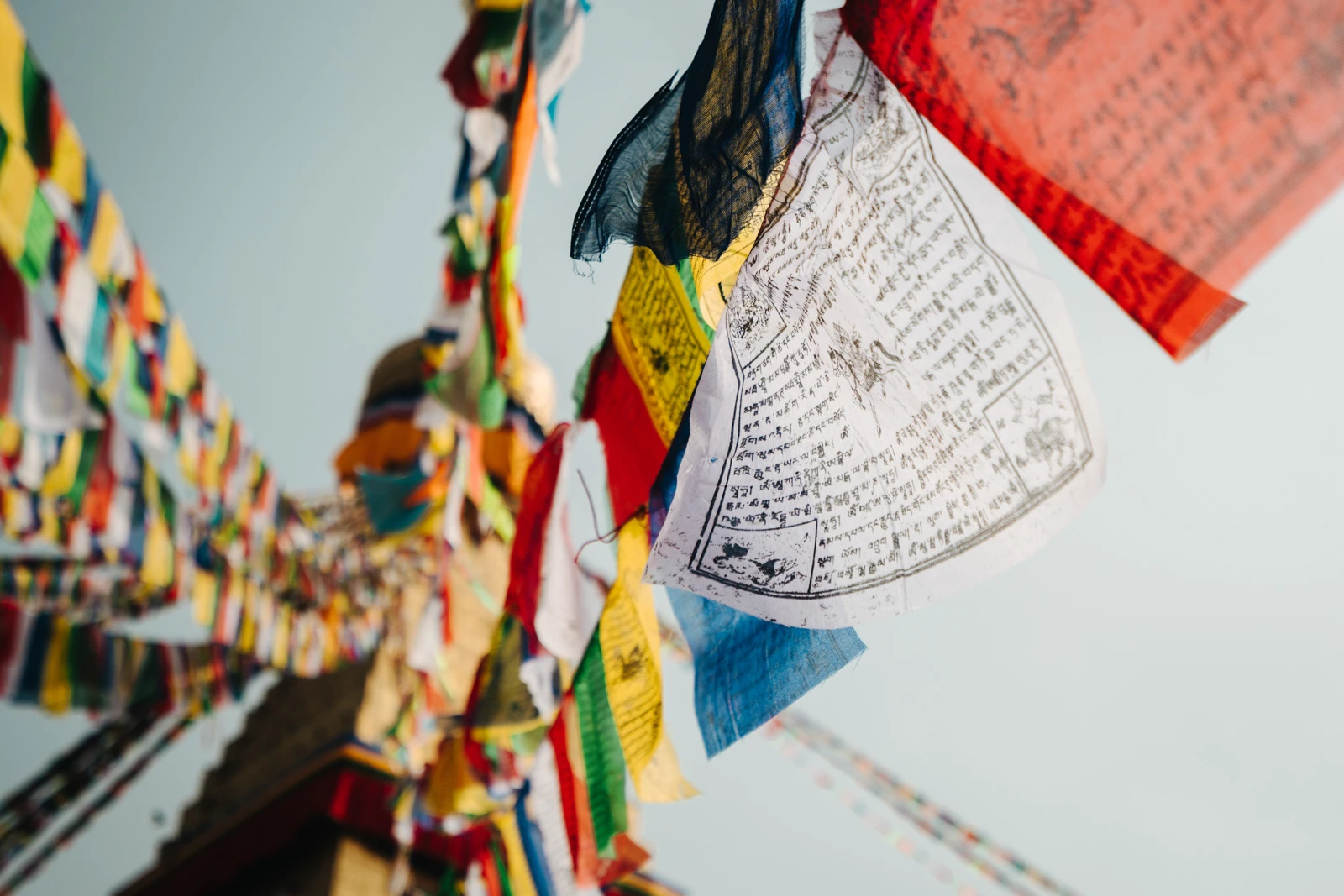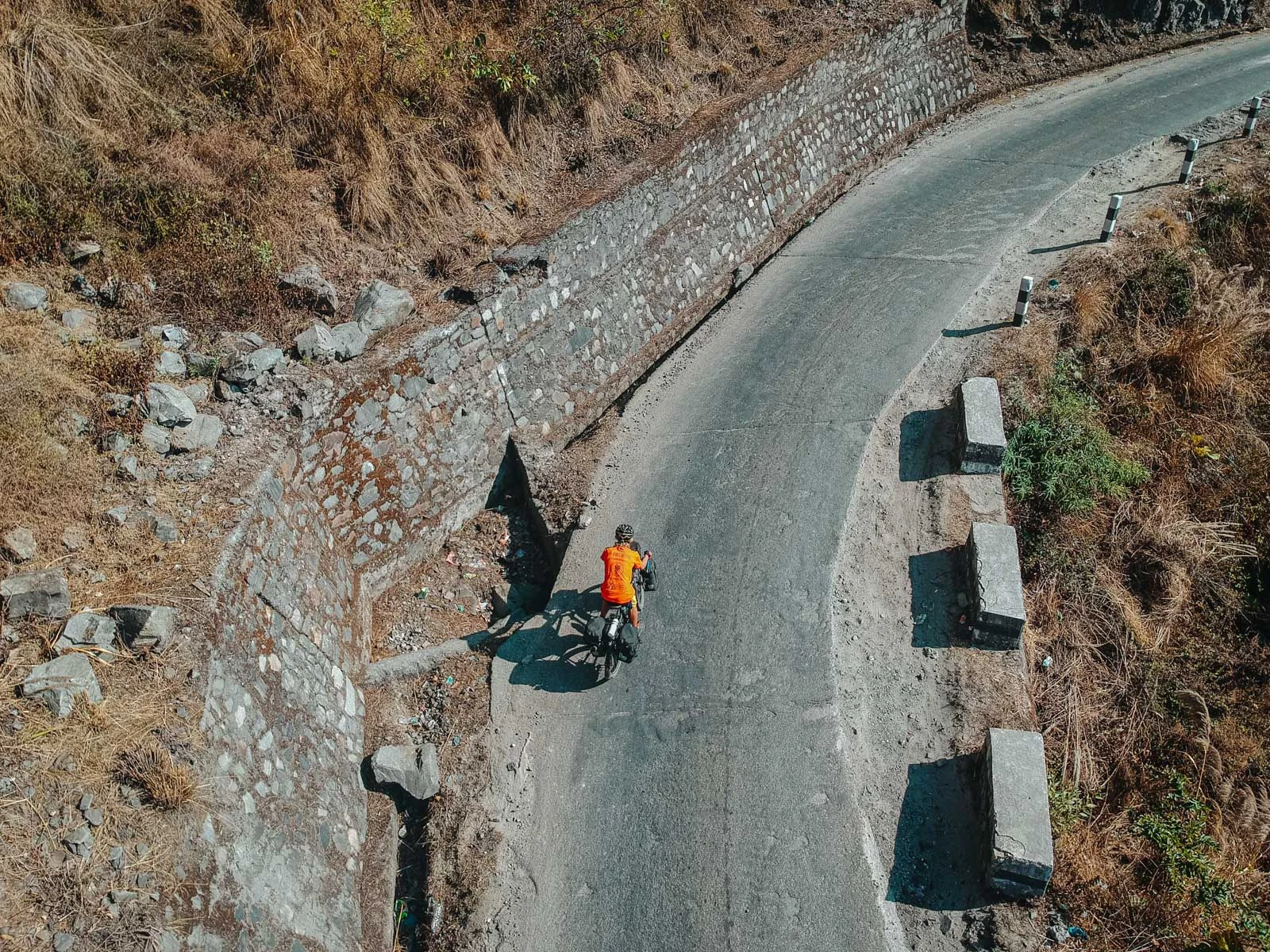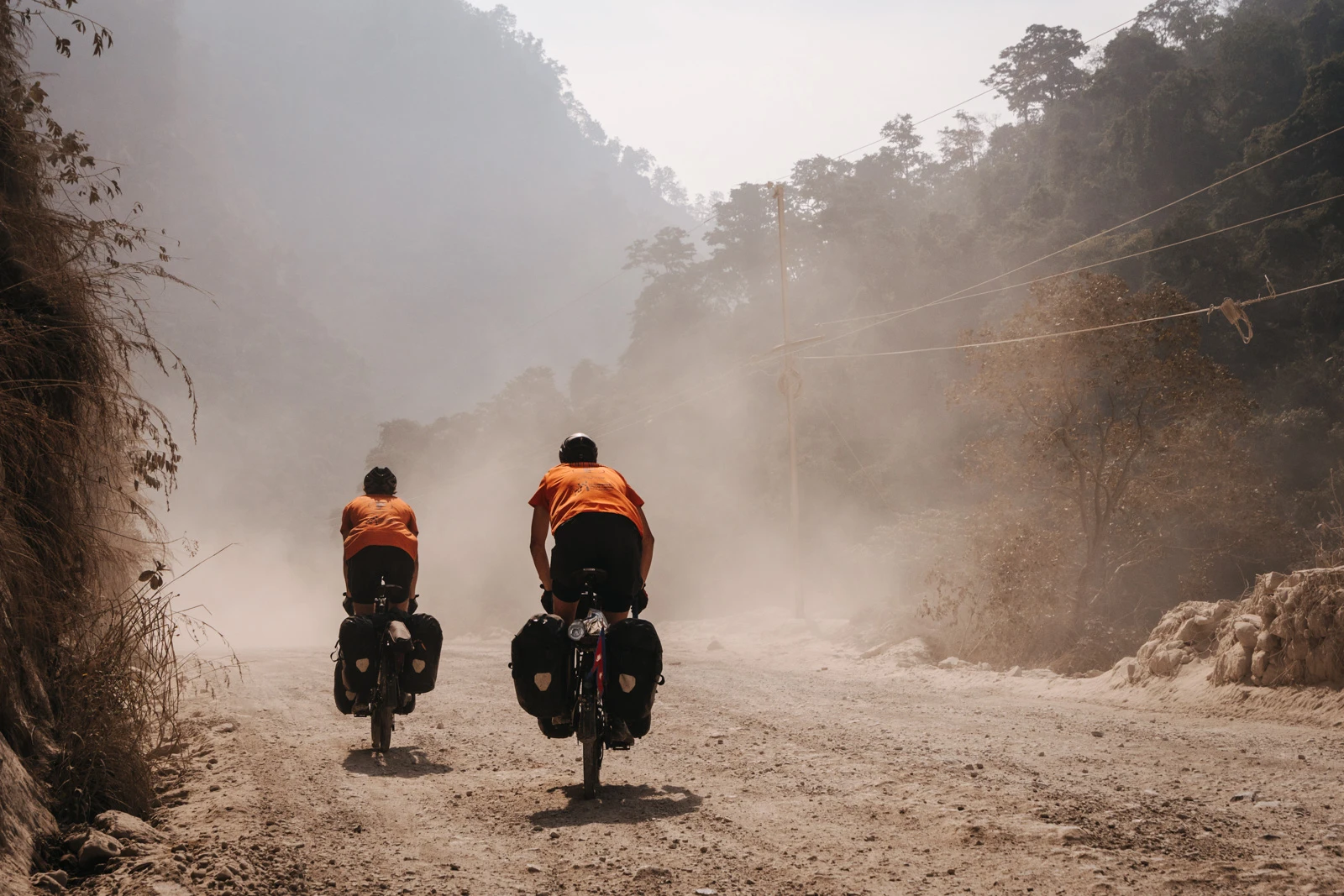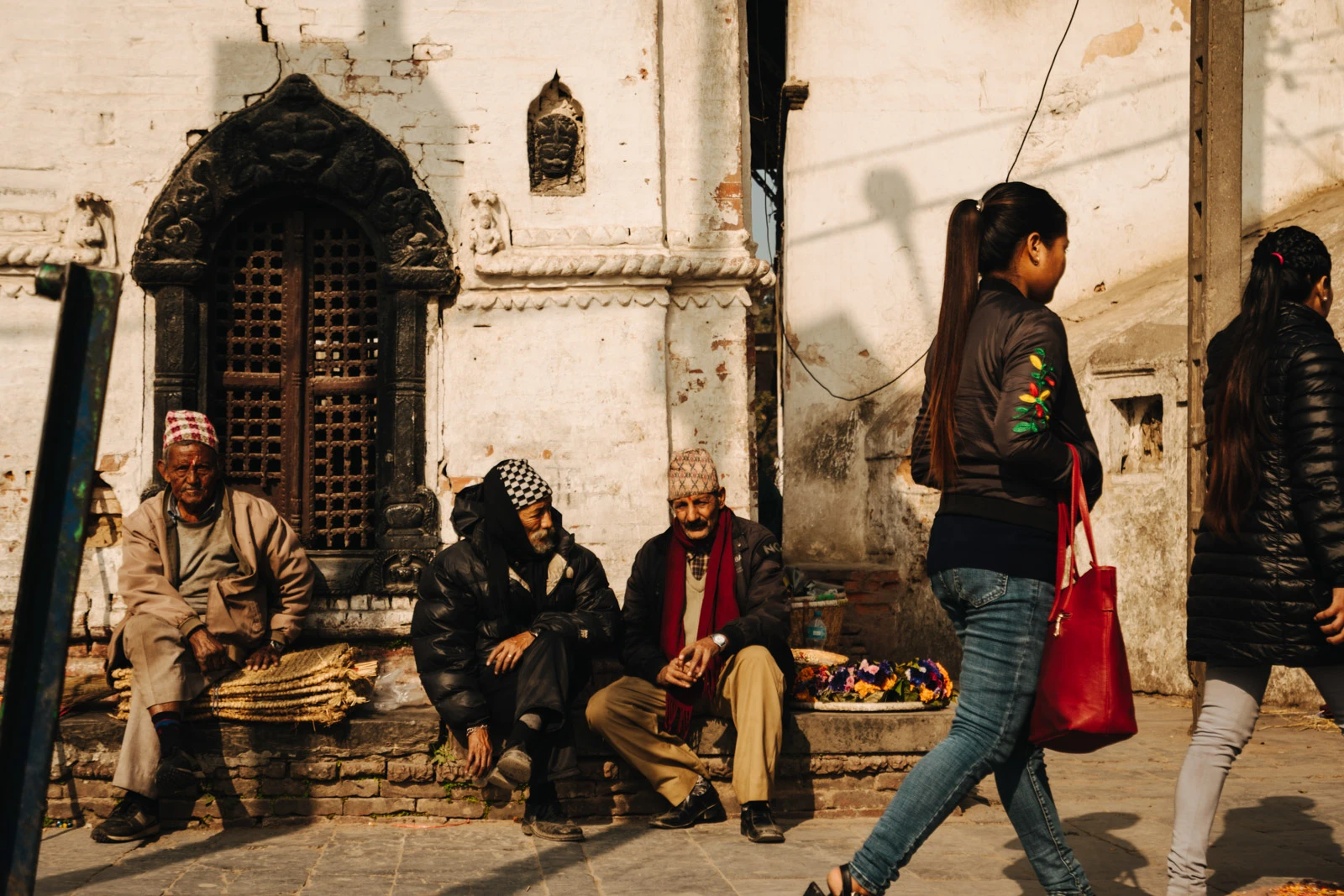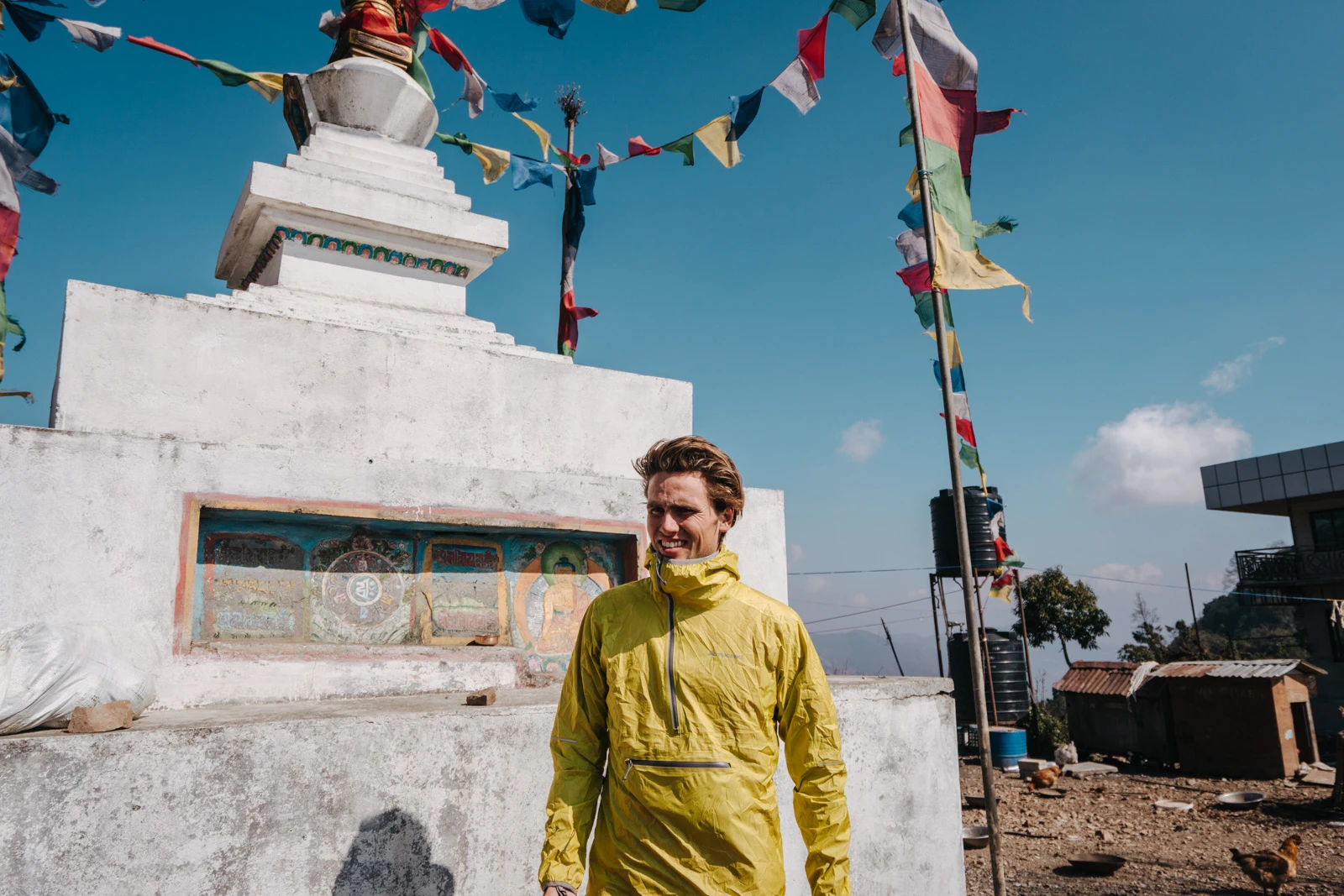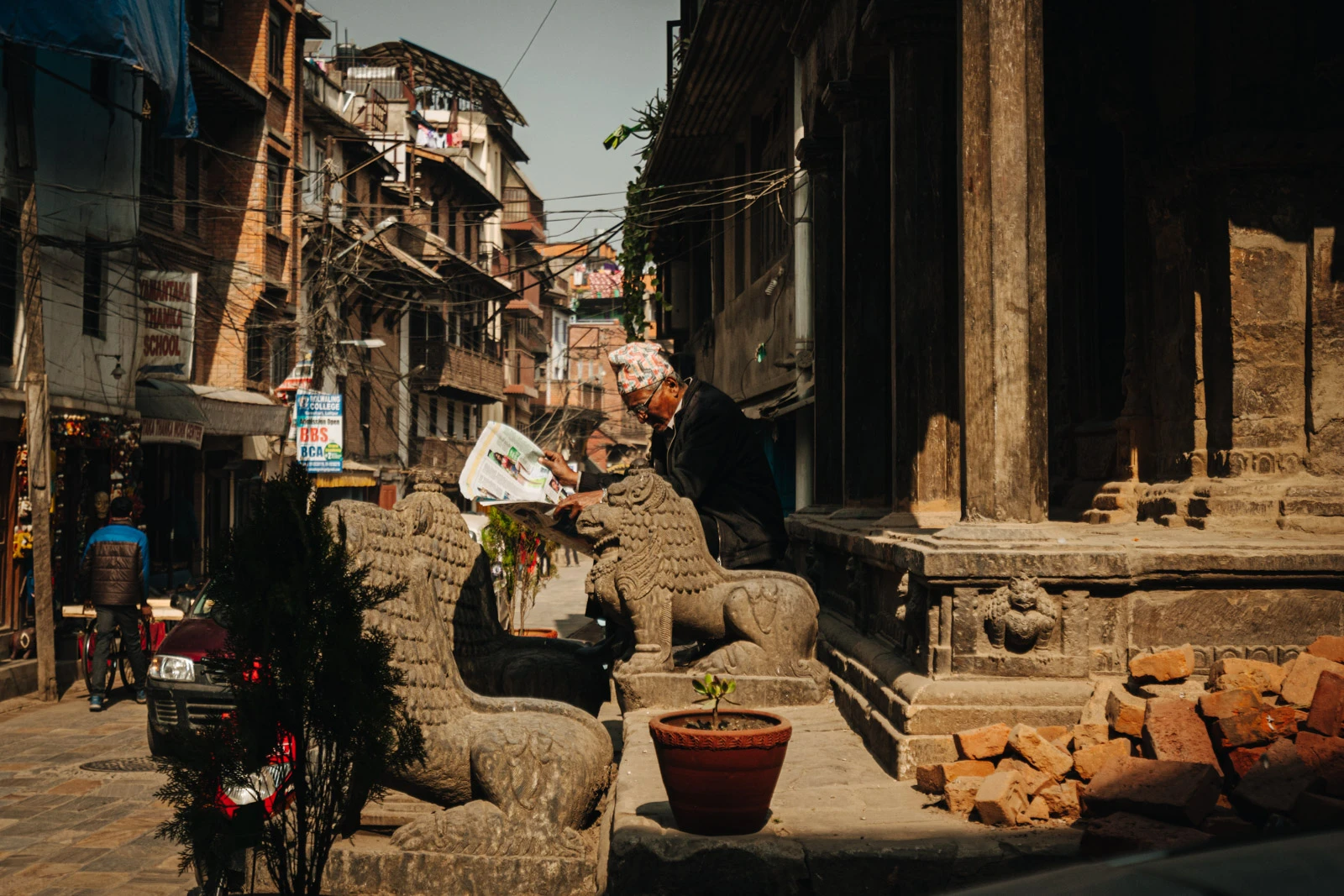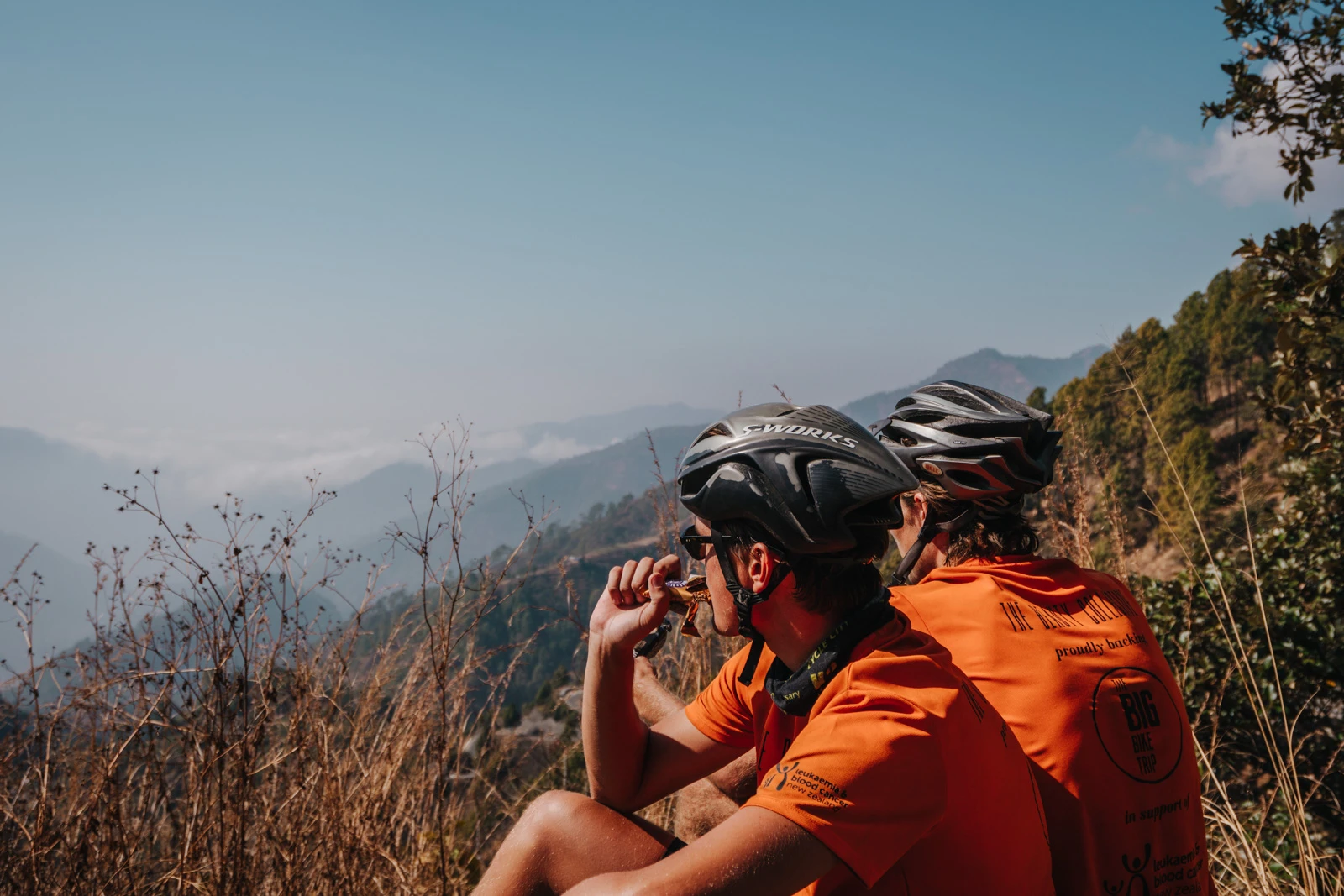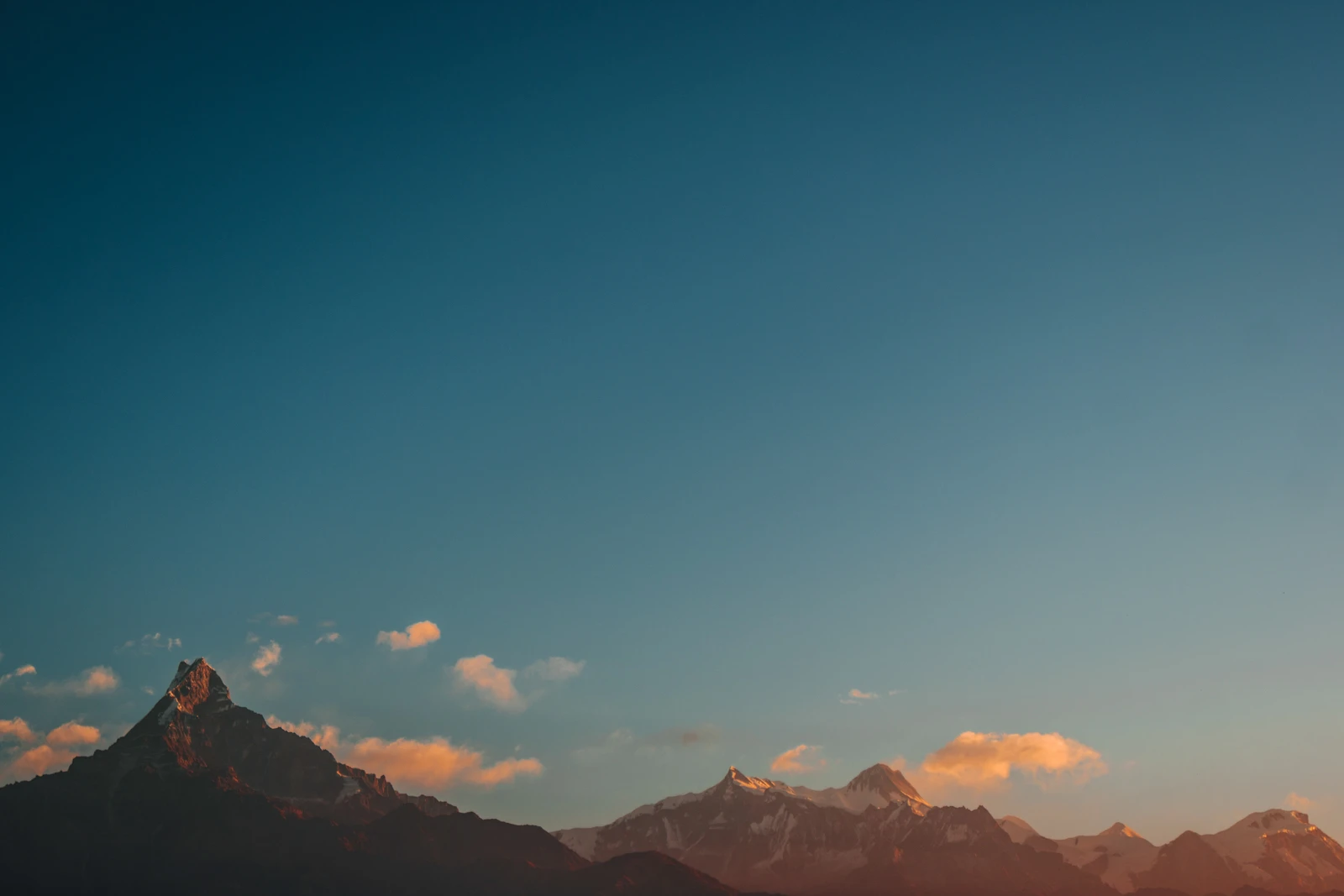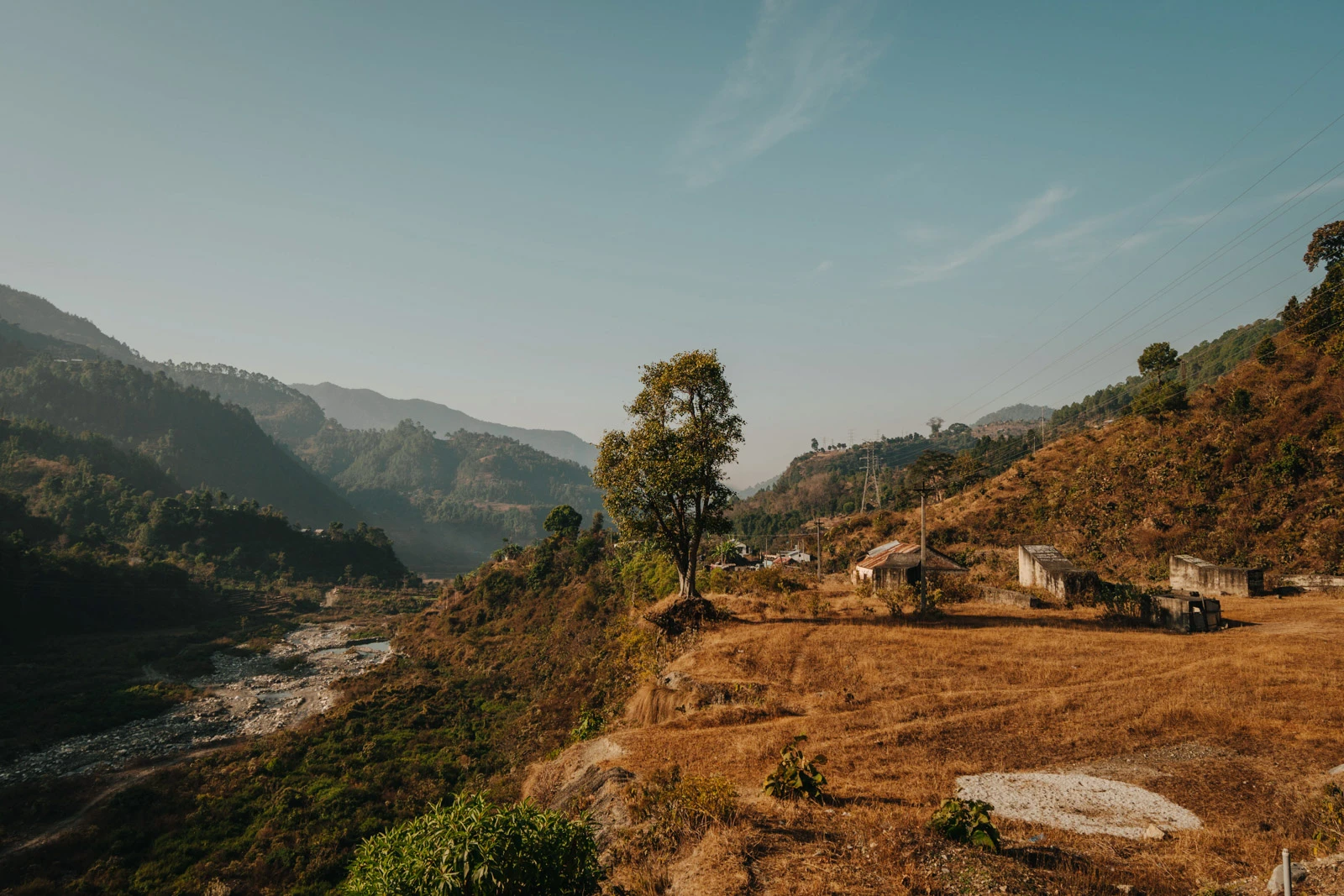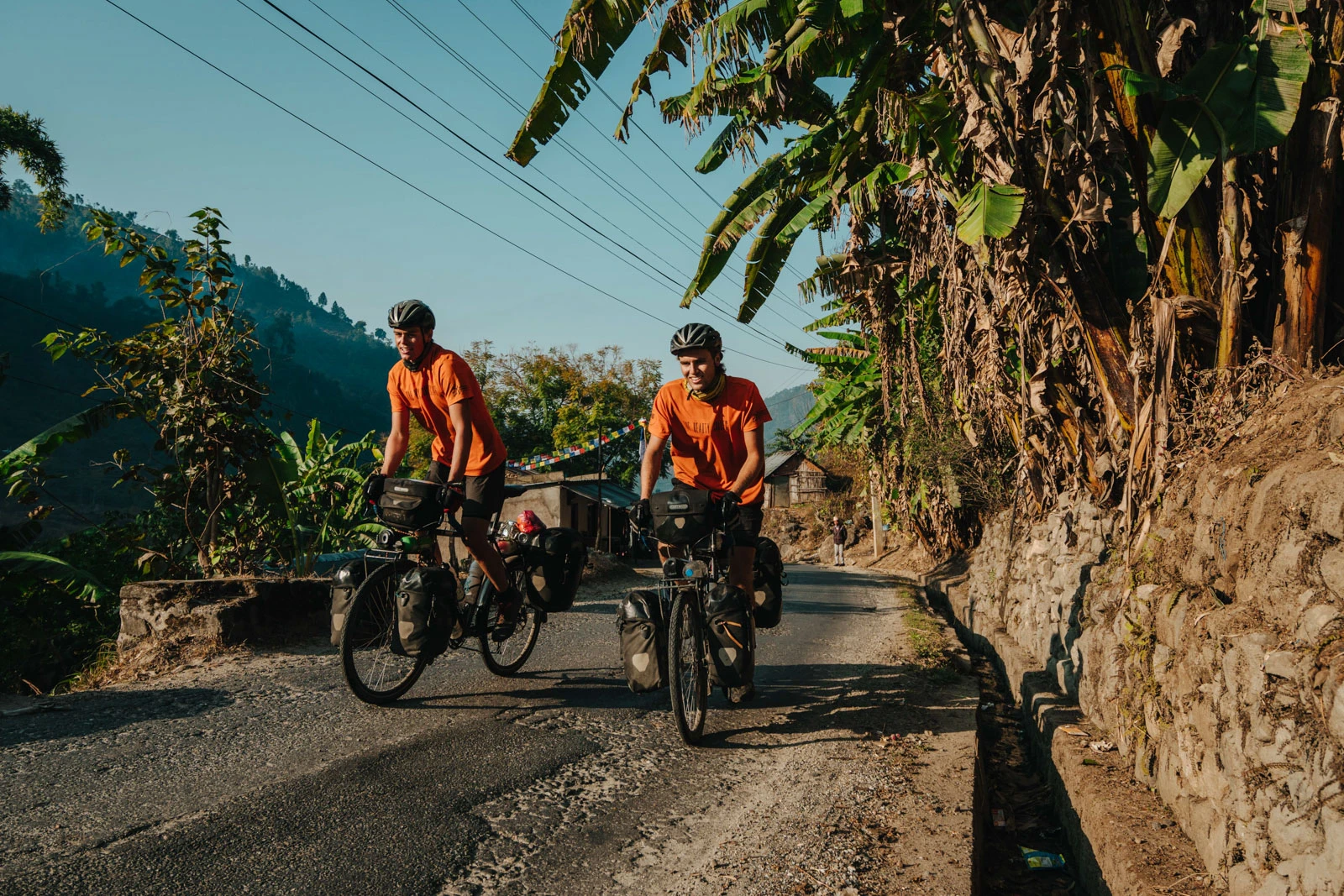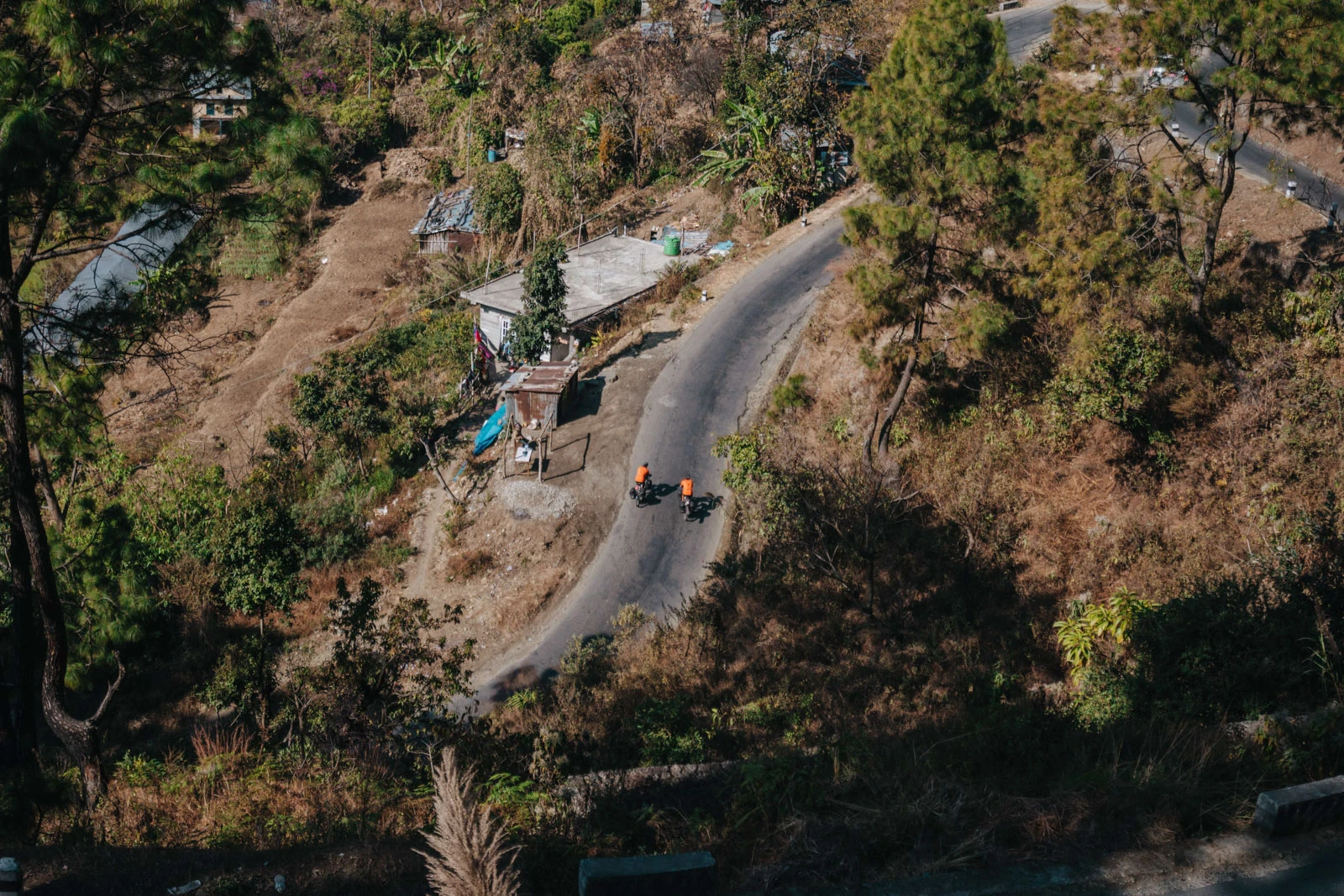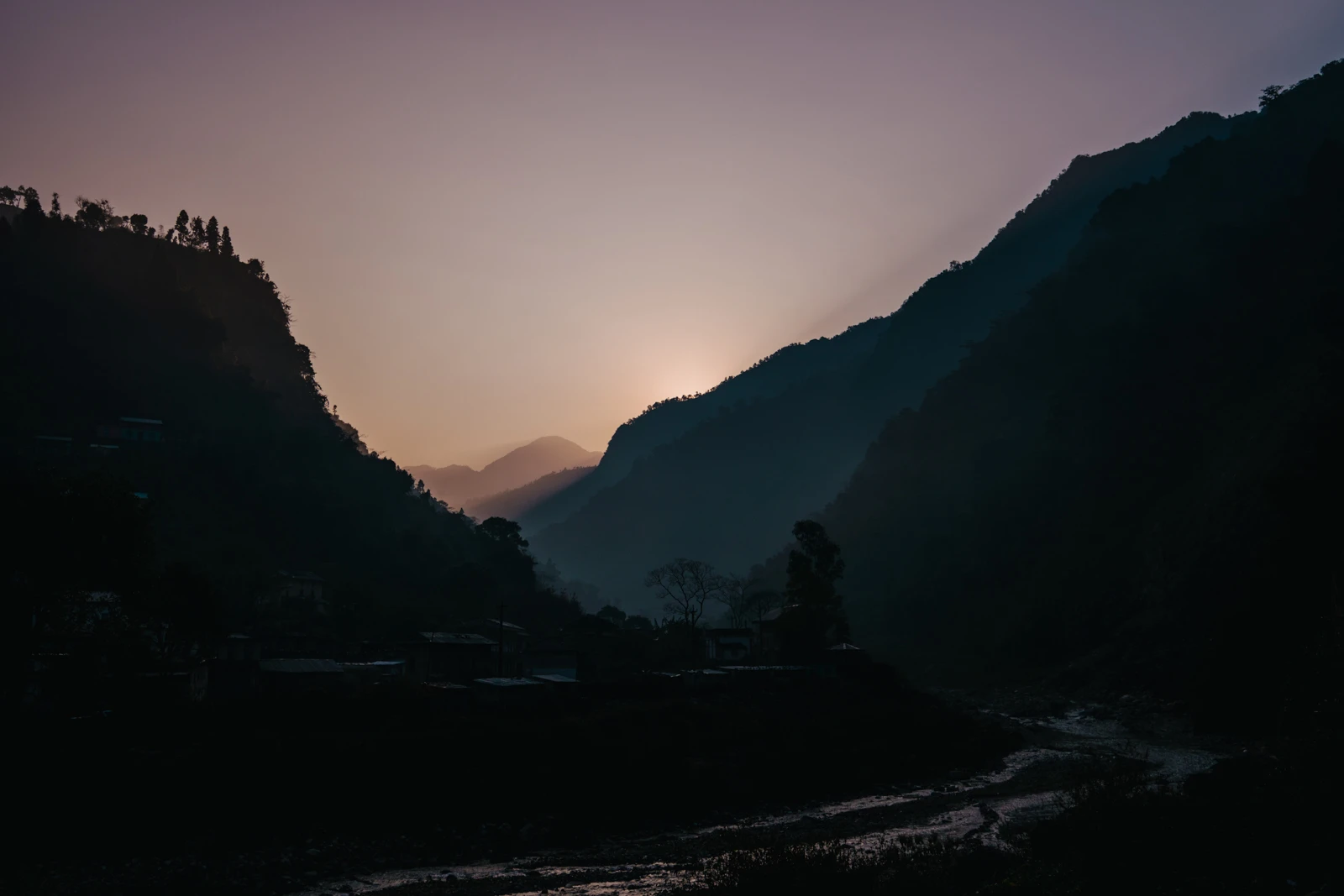Words: Freddie Gillies
Images: Sean Wakely
At 7am the sun rose but it wouldn’t creep over the tops of the surrounding peaks until mid-morning. The chai wallahs were yet to wheel their carts out to the dusty road side, where the business of the town was done, and the samosa wallahs were yet to open their shops. We couldn’t wait for them, as eager as I was to sit and watch the street warm to the day. The road ahead was long, but it wasn’t so much the distance that was weighing heavily on my mind, but the condition of the roads and the steepness of the climbs that rose out of the very streets of Hetauda.
The cold was pervasive as we pulled out of town, a January chill that was yet to thaw. The river raged beside the road, angry and torrential with suspension bridges for the hikers hanging precariously above, entwined with prayer flags. The road was in good condition by Nepali standards, a pothole here and there but tarmac, beautiful, smooth tarmac, stretched into the hills like a ribbon that waved, emancipated in the breeze. And the switchbacks were many and started up ahead, beyond the monastery that stood watch over the bridge that spanned the river, the gateway to the high mountains.
Heavy bikes make heavy work out of mountain roads, so they say, and such was true of our Surly Long Haul Truckers, loaded with all we had for a year and a half. ‘How heavy are they?’ we’d often get asked. ‘Heavy? Around 50 kilos,’ I would say. But of course it depended on a multitude of factors. When the road turned up and pointed toward Kathmandu, the kilograms became more apparent than they ever had. And when the road went up you started to think about what could have been left behind. What didn’t we need to be carrying? There wasn’t much by way of superfluous additions. There was no box of beer (like we’d carried on the Otago Rail trail all those years ago), little by way of personal entertainment, and the bare minimum clothing. Arguably too little clothing for the cold ahead. Hard to face, but apparent and glaring – there was no escaping the weight.
The road turned to gravel and the Tata trucks, a brilliant madness of colours and sounds, came bounding down the hills, honking a polyphonic symphony that posed as a horn, by way of hello, goodbye, and get out of the way. And the dogs, spindly and malnourished, came chasing, barking furiously for the scraps of food wrapped in bags on the back of the bikes. There was a bag of samosas we’d stashed for a break up the road. They must be after that, I thought wearily, for I hated dogs on the road.
There was a traffic jam up the road, curious as the roads had been quiet, like a city in lockdown. The vehicles were close but there was enough space to maneuver the bikes up the road to the epicenter of the problem, where two trucks had met on the narrow road. None had backed down and so they wedged themselves together, like two heavyweights in a title clash, neither able to move, neither willing or caring to do so. The chai wallahs would be out soon, excitedly wheeling their carts to the scene of the roadblock to service the drivers who awaited some form of intervention that could only come from themselves. Nearing the top of the pass the pace quickened as it so often would between brothers. As the stupa neared and the prayer flags that guided us to the roadside stop, fluttering frenetically in the breeze approached, I accelerated away from my younger brother, visions of Grand Tour victories playing in my head like I was front row on the Alpe d’Huez, watching the greats sling blows at each other until one crumpled under the strain.
Lunch was brief, a thali of dal bhat, roti, rice, mango chilli pickle and rita. Brief because it was 2pm and the sun only lingered until 6pm and we weren’t yet half way there. The road spiraled back down into the next valley, down to a lake and a dam and then back up the next side where the road deteriorated further.
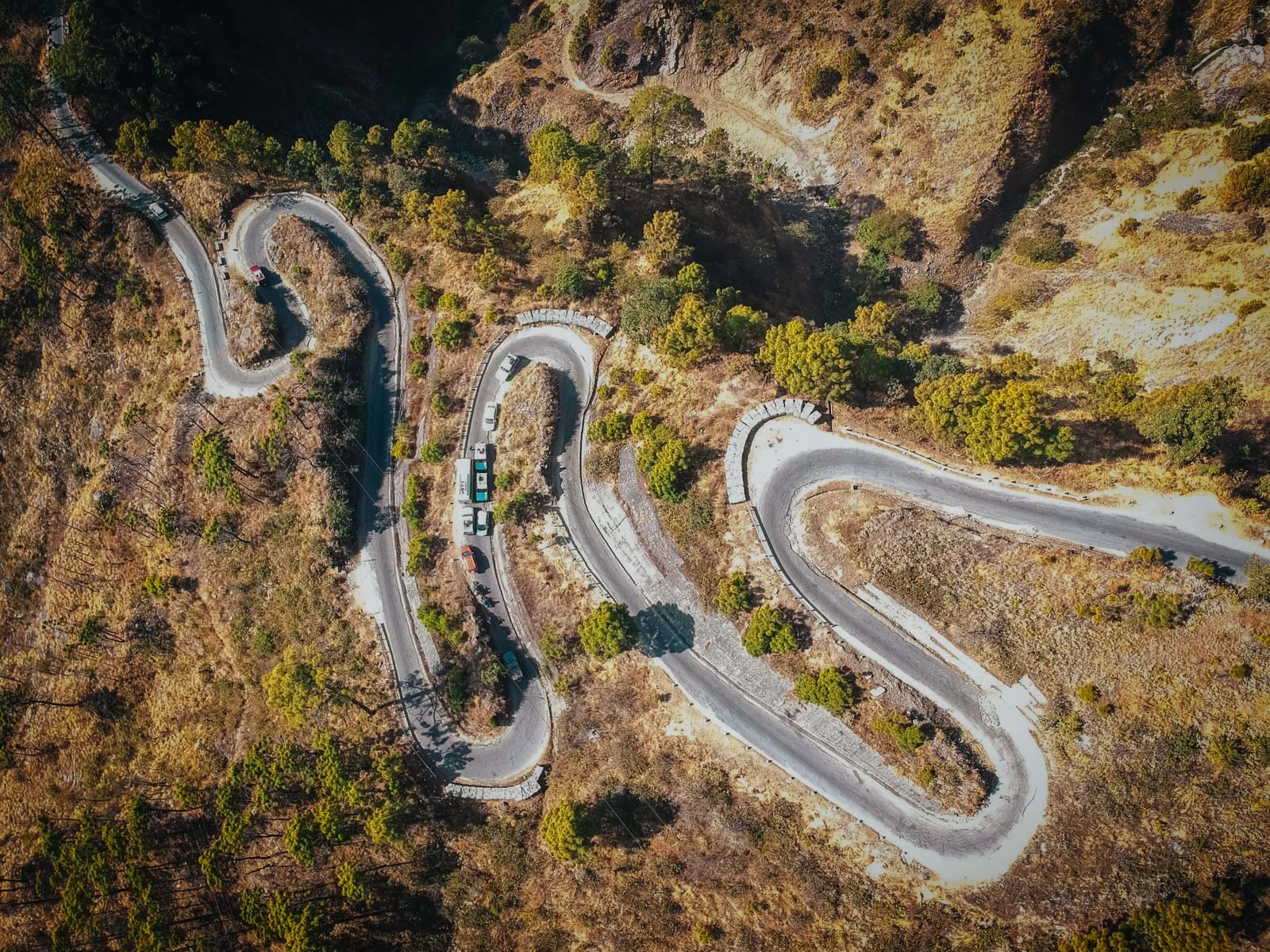
The judder bars on the gravel road started on the steepest sections, where the chaotically overfilled buses and trucks had to accelerate desperately to maintain momentum up the slopes of the Himalaya. The bars shook and rattled and protested and the dust rose like steam does from a wet road on a hot day. Thick and choking, it covered every inch of available skin, for it stuck to the sweat. It was our battle paint, our souvenir for the day. I pulled up to catch a breath, the others were no longer in sight. My breathing slowed and all went quiet, but for the birds and the faint sound of an engine protesting in the distance. I waited for five minutes and there was no sign of either of them. I dreaded going back because my legs didn’t want that, fatiguing from the day and the weeks that had led to that day. I waited longer, hurriedly checking my phone in the handlebar bag of my bike. Ten past three it said almost tauntingly. A motorbike sped past, a truck soon followed. They weren’t coming, I suddenly thought, something had gone wrong.
I turned my bike and cycled, for I feared loneliness more than any climb. They were there, on the side of the road, with an upturned bike, panniers strewn about the dusty ground.
‘Slipped the chain,’ Arthur said, matter of fact, ‘Dropped to the small ring and dropped the chain. It’s stuck. Don’t know how.’ He had oil on his hands, a real slick of the filthy stuff.
‘Here let me look,’ I mumbled, leaning closer like a dentist to his prey, ‘Yeah it’s wedged against the frame. Got a Leatherman handy?’ Arthur passed me the multitool. I opened the file and placed it on the chain and hit it like a boxer would an opposition, with all the conviction it deserved. ‘Fred, is it okay to be doing that?’ Arthur asked cautiously.
‘Yes, of course it is,’ I said, bringing down another blow that sent waves of pain through my forearm like a jolt of electricity. The chain broke free from its incarceration and I hooked it back onto the chainring and the bike was loaded again and we continued up the side of the mountain.
Hours later Kathmandu appeared beyond the ridge as the last of the sun’s light danced on the tops of the mountains. It was so close, you could almost see Boudenath Stupa, brilliant and glaring as it caught the light and shone above the dirty streets below. We ate the samosas Arthur had carried at a viewing platform high above the city, anticipating an easy ride down into the valley but such was not the case. The road continued up and down like an upturned saw, weaving its way back into the hills and then down and then back up again.
‘The city’s down there,’ we all thought in silent desperation, ‘why are we going up again?’
The sun disappeared and we continued into the night as scooters and buses and trucks spun around us like we were caught in a video game. The fumes were choking, the dusty settling in our throats, a scratchy and cough inducing pain. Beyond Thamel, where the prayer flags fly above every street, we found our hotel. The moon rose and the temperature plummeted below zero but it didn’t matter because we were indoors and warm. We ate and then slept and woke to the cathartic hum of the heater on the wall in the morning, legs like jelly but happy because that was everything cycle touring was supposed to be.


